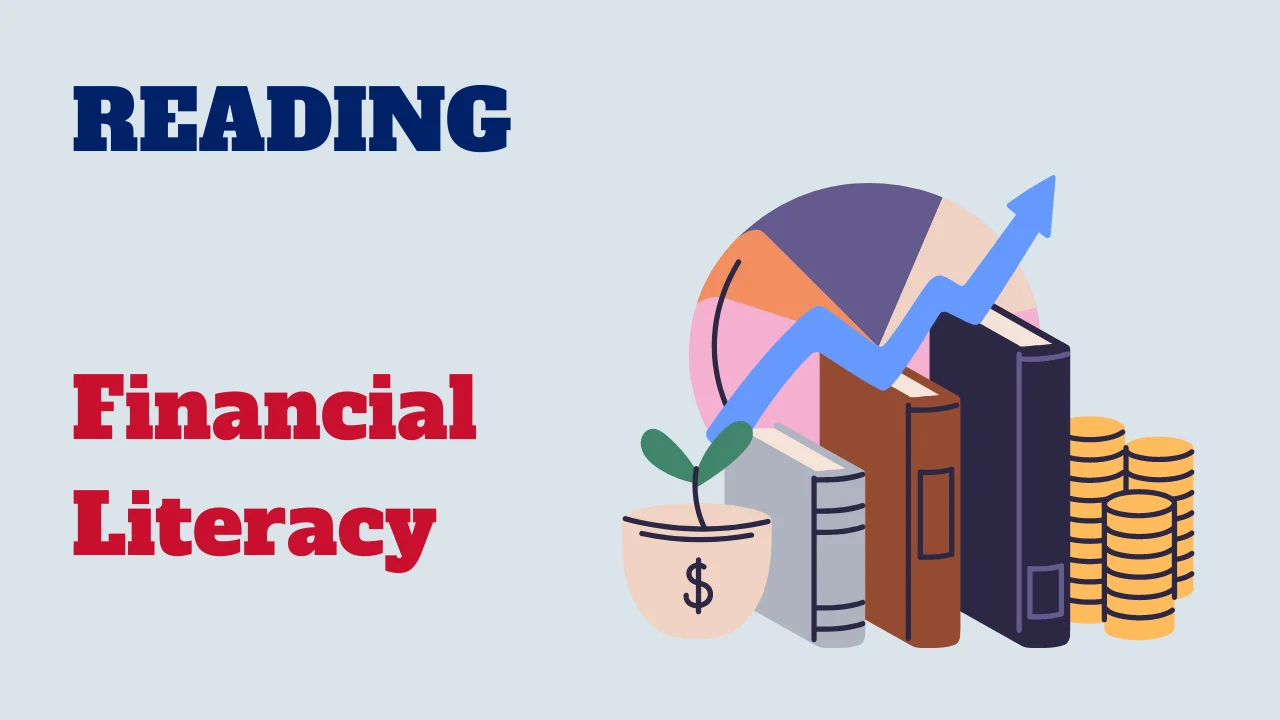Welcome to an exploration of the critical concept of financial literacy. In this reading activity, we’ll delve into the significance of understanding financial principles, the scope of financial literacy, and why it matters in today’s society.

Through comprehension questions, we’ll test your understanding of the text, helping you grasp the importance of financial literacy and its practical applications in managing personal finances effectively.
Text: Financial Literacy
Financial literacy refers to the ability to understand and effectively use various financial skills, including personal financial management, budgeting, and investing. It involves the knowledge necessary to make informed and effective decisions regarding the use and management of money. As an essential life skill, financial literacy empowers individuals to achieve financial stability, avoid debt, and build wealth.
One of the fundamental aspects of financial literacy is budgeting. Creating and maintaining a budget helps individuals track their income and expenses, ensuring they live within their means. It involves setting financial goals, distinguishing between needs and wants, and allocating resources accordingly. A well-planned budget can prevent overspending and facilitate savings for future needs or emergencies.
Saving and investing are also critical components of financial literacy. Understanding the principles of saving—such as the importance of an emergency fund—and the basics of investing can significantly impact an individual’s financial well-being. Knowledge about different investment options, risk management, and the power of compound interest allows individuals to grow their wealth over time. Financial literacy enables people to make informed choices about retirement accounts, stocks, bonds, mutual funds, and real estate.
Credit management is another crucial area. Financial literacy involves understanding how credit works, including credit scores, interest rates, and the implications of debt. By comprehending these concepts, individuals can use credit responsibly, avoid excessive debt, and maintain a good credit rating, which is vital for securing loans and favorable interest rates.
Furthermore, financial literacy includes awareness of consumer rights and the ability to navigate the complex landscape of financial products and services. It empowers individuals to recognize and avoid financial scams and predatory lending practices.
In the broader context, financial literacy contributes to economic stability and growth. When individuals are financially literate, they are better equipped to make decisions that contribute to their personal prosperity and the economy’s overall health. Therefore, promoting financial education is essential for fostering a financially savvy and resilient society.
Comprehension questions
Congratulations on completing the exploration of financial literacy! Through this activity, you’ve gained insights into the importance of understanding financial principles and the potential consequences of financial illiteracy. Remember, by enhancing your financial literacy, you equip yourself with the tools and knowledge needed to make informed decisions and achieve financial well-being. Keep learning and applying these principles to navigate the complexities of personal finance successfully.



